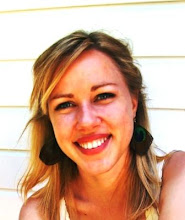When Jill Colon came out of prison, she walked into the arms of her Prison Fellowship mentors, Ginger and Esther. They treated her to a picnic lunch in the park before escorting her to a safe transitional housing unit. For a year before Jill’s release, her two mentors had met with her many times to help her prepare for freedom, and they continued to walk with her from the day of her release, gathering donated clothes, finding money to pay for her prescription drugs, and ushering her into a local church.
When Jill Colon (left) got out of prison, she had mentors and resources to help her succeed. Most released prisoners go back inside--crowding prisons and straining budgets.But for many of the 700,000 prisoners released to American neighborhoods each year, the return to society looks bleak. After months or years in an environment prone to eroding decision-making skills, many will take their bus fare and the clothes on their backs and head straight back to familiar territory: addictions, broken relationships, and crime. Nationwide, about half of released prisoners will land back behind bars within three years. Taxpayers will foot the bill for their continued incarceration.
The Big Picture
The alarming recidivism rates of offenders are part of a much larger crisis in American corrections—a crisis that many innovative legislators, corrections officials, and nonprofit partners are working hard to address.
But first, how did we get here?
In the last three decades, many of America’s national and state policy-makers—with broad public support—made sweeping avowals to get “tough on crime.” Harsher sentencing legislation soon followed, such as three strikes laws, mandatory minimums, and the abolishment of parole for certain categories of offense. Meanwhile, tougher penalties for drug use, possession, and distribution helped to keep more people in prison longer.
As a result, by the end of 2008, more than 7.3 million people were incarcerated or under correctional supervision. That’s more than the individual populations of 38 U.S. states, or one in every 31 adults.1 America’s prisons are the fullest in the world.
What Incarceration Costs Us
The cost of corrections has spiraled to roughly $68 billion per year.2 Nationwide, it costs $20,000 to $40,000 per year to incarcerate each of the country’s 2.3 million prisoners, and as the prison population ages, the cost of prisoners’ medical care climbs by 10 percent annually.3
Add to those the hidden costs of high incarceration rates.
When prisoners, especially nonviolent drug offenders, spend decades behind bars, state, local, and federal governments lose out on untold taxable income and workforce productivity.
The incarceration of a parent also adversely affects the family left behind, and minority families are disproportionately represented in their ranks. Seventy percent of children with a parent in prison belong to a racial minority.4 Once a parent is in jail, parent-child contact often fades away. Prisoners’ children—seldom recognized as victims themselves—face an elevated risk of long-term emotional and behavioral disturbances, including academic failure, aggression, and intergenerational incarceration.5
Finally, whenever corrections policy emphasizes punishment over rehabilitation, prisons risk becoming warehouses for inmates. Without access to evidence-based programs to combat addictive behaviors, improve literacy, and impart parenting and vocational skills, released inmates emerge from prisons no better equipped than when they went into them. Prisoners who have not addressed their drug addictions or skills gaps are more likely to commit new crimes upon release, creating new victims and compounding costs for corrections.
Truly dangerous criminals belong in prison. But many offenders could be diverted to alternative corrections without risking public safety, and others could be given tools to make their prison time a truly transformative experience instead of simply a brief hiatus in a life of crime. Because public safety is at stake and public funds are scarce, it is time to examine whether every taxpayer dollar spent on corrections is really making our society more secure, just, and compassionate.
Seeking Solutions
The economic downturn has hit state budgets hard. Combined, states face a projected $375 billion shortfall between FY2010 and FY2011.6 While tightening their belts, states have had to examine their corrections budgets—which previously ballooned 349 percent between 1987 and 20087—and find places to cut spending.
States have first attempted to slash corrections spending in the short term. They have worked to make daily operations less costly by renegotiating the cost of inmate pharmaceuticals, reducing staffing, reducing salaries or benefits, consolidating facilities, and canceling inmate programming.8 Twenty-two states have in some way diminished their corrections capacity by shutting facilities, reducing beds, halting planned expansions, or delaying the opening of new facilities.9 States have also embraced low-risk approaches to reducing inmate populations, such as reducing the number of technical parole violations that result in incarceration and allowing some low-level offenders to serve less than mandatory minimums for satisfactory participation in rehabilitation programming.
Reducing prison populations through innovative release and supervision policies is an important step in controlling corrections costs, but what consequences arise when states must also apply the scalpel to rehabilitative programming?
States like Kansas, Texas, and Colorado, which have in recent years put major dents in their recidivism rates, did so largely by proactively investing in evidence-based pre-release programming. But when the budget crisis hit, Kansas lawmakers slashed funding for community rehabilitation programs—particularly for substance-abuse treatment—that had shown dramatic success. “The money simply doesn’t exist to begin to restore those programs,” laments Bill Miskell, a spokesman for the state corrections department.
While the move has helped shrink Kansas’ corrections budget for the moment, the long-term consequences are already beginning to show. This year one of Kansas’ shuttered prisons will re-open, partially to help house the recidivists, whose numbers, after a promising dip in 2007, are again on the rise.10
So far, Texas has managed to exempt inmate treatment programs from planned budget cuts.11 Colorado has implemented sentencing changes designed to reduce imprisonment rates for low-level drug offenses, raise penalties for more serious offenders, and invest the savings in substance-abuse treatment.
Non-Prison Options
There are also cost-effective approaches outside of prison walls, like community corrections options. According to Dr. Joan Petersilla, community corrections are “non-prison sanctions that are imposed . . . instead of a prison sentence . . . to provide offender accountability, deliver rehabilitations services and surveillance, and achieve fiscal efficiency.” Not only are community corrections approaches generally found to be more effective, particularly for drug-addicted felons, but they can also offer significant savings. An Ohio study in 2002 found that the state saved between $2,000 and $11,000 by appropriately diverting an offender to community corrections instead of prison.
There are also more than 2,000 drug courts in the nation. The original drug court, an intense, community-based program to treat, restore, and supervise drug felons, appeared in the Date County Circuit Court in 1989. Drug courts divert nonviolent substance abusers into treatment. According to the Office of National Drug Control Policy, research has shown that drug courts “lower arrest and conviction rates, improve substance abuse treatment outcomes, reunite families, and produce measurable cost benefits.”
The Nonprofit Piece
Departments of corrections (DOCs) throughout the nation face difficult decisions. In California the secretary of the Department of Corrections and Rehabilitations, Matthew Cate, summarizes the situation of many: “The budget reality has forced . . . tough choices as we weigh population reductions, staff layoff, and a significant cut to our rehabilitation programming. We must target our limited resources.”
Like Jill Colon on the day of her release, DOCs have friends eager to help them reach their goals of offender rehabilitation and public safety. Nonprofit organizations, churches, and entire communities can help to fill in the service gaps that the budget crisis has left.
Prison Fellowship is just one organization that works with DOCs in all 50 states to bring change into the lives of prisoners. The InnerChange Freedom Initiative® (IFI), developed by Prison Fellowship, is an intensive, combination in-prison/post-prison reentry program based on the life and teachings of Jesus. Research on one of the IFI programs, now active in five states, showed that its graduates have a much lower rate of return to prison than comparable prisoners. Prison Fellowship is working diligently to incorporate the most effective elements of IFI into programming in other prisons.
IFI and similar programs can complement the aims of Departments of Corrections who may have the will to fight recidivism but lack time, manpower, or resources. Further, faith-based organizations can provide spiritual guidance that helps change prisoners’ lives at the core level of conscience and character.
Beyond assisting with programming, nonprofit ministries can help DOCs create the community-based continuums of care that help ex-prisoners make a successful transition. Prison Fellowship has begun to organize Out4Life coalitions throughout the United States. Out4Life partners—DOCs, prison ministries, churches, community-service organizations, social-service agencies, and volunteers—work together to provide services and resources that help ex-prisoners gain employment, find housing, and reconcile with their families and communities.
The corrections policies of recent decades have taken an enormous toll—both financial and social. While many states have adopted evidence-based policies to reduce prison populations and ensure public safety, the current fiscal crisis imperils both goals. But in this moment of crisis, DOCs and nonprofit partners have a unique opportunity to collaborate in the interest of the law-abiding public, and for the good of prisoners who could safely rejoin the world outside the walls.





